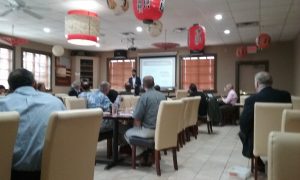Samir Rahi is a co-founder of SkinAware, a UTD team which recent won the UTD business idea competition. They seek to improve skin based allergy testing by developing a miniaturized, flexible, bioelectronic device. Their test is derived from UTD faculty created tech that combines nanoliter dosages of allergens (versus the current milliliter dosages) delivered through a patterned microneedle array embedded on a flexible bioelectronic along with temperature sensors capable of measuring thermal fluctuations down to 1/100th of a degree. The end result is a bandaid sized test that quantitatively determines a patient’s allergic response by measuring changes in skin temperature correlated with allergic reaction.
The company is seeking advisors and mentors to assist with FDA and other regulatory consulting as well as with developing a backend connection between the device and the visual display that will show the patient’s results/ If you can help or are interested in learning more, please contact Samir at Samir.RahiPrevent@Spamutdallas.edu.
Rik Heller of Wello then spoke about airborne contagion spread models, where droplets of pathogens are expelled into the air due to coughing, sneezing, or talking. Using influenza, SARS, and other case studies, he discussed observed conditions of contagion spread, with one example being a peak of influenza around New Years. He noted two aspects of airborne contagion spread. The first was a correlation between infectivity and humidity. The second was based on the SARS case studies where ~10% (“superspreaders”) infected ~90% of those eventually infected. He concluded in presenting how the Wello Station seeks to limit “superspreaders” by periodic temperature scanning for febrility in a workplace, hospital, or other focal point. He also presented how Wello Watch seeks to limit the second aspect by monitoring humidity and providing notification of spread and susceptibility risk conditions.
